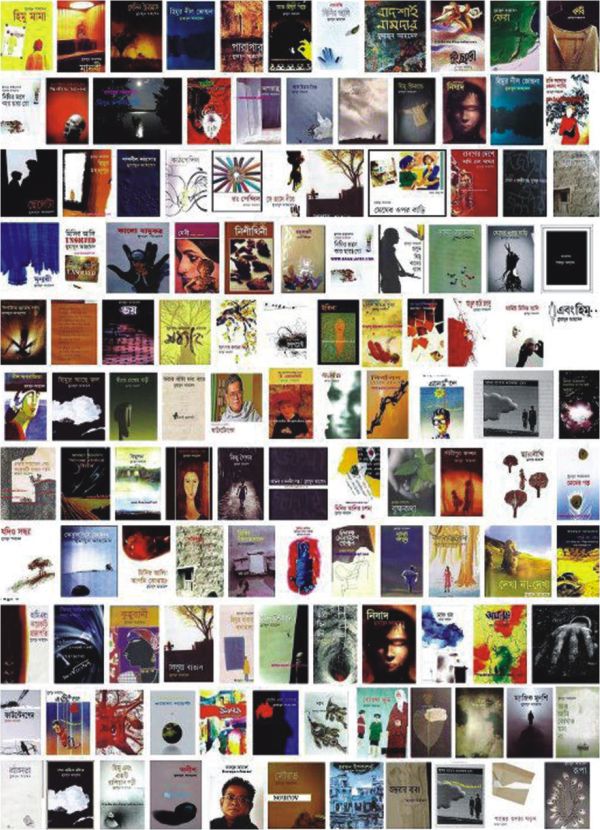Post Campus
Humayun Ahmed:
The Pied Piper of Bangladesh
Asrar Chowdhury
"Hawa Mein Udta Jaye- Mera Lal Dopatta- Mal, Mal Ka- Logi, Logi".
Remember the song and the times when Bangladesh wore a black badge for Baker Bhai, the maverick societies seldom acknowledge? The last time a nation wore a black badge for a fictional character was probably when Arthur Conan Doyle brought an end to the larger than life Sherlock Holmes. Who in Bangla literature since Satyajit Ray could make fictional characters a part of the soul of a nation? Alas! The ink pot from which his quill created one magical fictional character after another has run dry. Humayun Ahmed, the master story teller, has left the material world. This is no fiction. This is reality.
In Boi Kena, The Bangla humourist, Syed Mujtaba Ali, made a satire that Bengalis don't have a reading habit. At the time of writing, Mujtaba Ali wasn't too far away from the truth. However, even a great observer like Mujtaba Ali overlooked that readership and reading habit also depends on the ability of writers to express the soul of their readers. If a writer can do so- 'supply will create its own demand' as the French Liberalist, Say, proclaimed. Markets will be created.
Before Humayun Ahmed, poetry was a dominant feature of Bangladeshi literature. There were fiction writers, but a truly Bangladeshi experience in the fiction genre was non-existent. Fiction readers looked towards West Bengal to quench their thirst. At the 'Gates of Dawn', just after the birth of Bangladesh, in 1972, a 24 year old 'Piper' emerged from nowhere with a blood red covered novel, Nondito Noroke. He brought with him a freshness of being able to speak the heart of the urban middle class- the segment of a book market where readership usually lies. The rest was veni, vidi, vici-- Humayun came, Humayun saw, Humayun conquered!
Humayun Ahmed became the darling of Bangladesh through the visual media. The timeless drama serials of Bangladesh Television (BTV) Ei Shob Din Ratri; Bohubrihi; Ayomoy and Kothao Keu Nei and later critically acclaimed cinemas Shyamal Chhaya; Shonkhonil Karagar; and Aguner Poroshmoni sealed his reputation as 'the' master story teller and Pied Piper of Bangladesh who knew how to make readers and viewers dance in whatever way he wanted through simple narrations that had more depth than at first sight.
The best story tellers are the ones who are able to tell a complex story in simple language. To survive in the hearts of men, a story teller needs to be able to tell the sagas of the hearts of men. Human emotions have been universal in all times and all places. Great story tellers describe and leave a subtle message at the end for the reader to find out in their own time and space. Humayun Ahmed was all this and still more. He made Bangladesh dream through Botol Bhoot; cry through Tuni and Baker Bhai and live, love and laugh through others. Bangladesh saw itself through his magic quill. Complexity within simplicity earned him a place in peoples' hearts. His fictional characters had the power to make people think, but above all dream and enter parallel worlds whatever genre or expression medium he chose.
The Pied Piper of Bangladesh who emerged from nowhere has made his way on a journey to a parallel universe with Misir Ali. Like the Pied Piper of Hamelin, he took with him the love of all who were enchanted by his magic flute. Himu, however, was present 'the day, the music died'. In his yellow Punjabi, Himu silently observed. With no language left in his heart, Himu saw it all- the love of Bangladesh for its Pied Piper. When the masses celebrate a death, you know the man has lived his life. When the masses celebrate a death, you know the man will keep on living in the hearts of men for as long as men can tell. The legacy he left will create more Himus and Misir Alis. These new writers will emerge from today's Campus Generation, sooner than we think. They will look tall because they will be standing on the shoulders of the greatest story teller of all- the Pied Piper of Bangladesh, Humayun Ahmed. RIP!
(The author teaches economic theory at Jahangirnagar University and North South University.)

|
|
|
